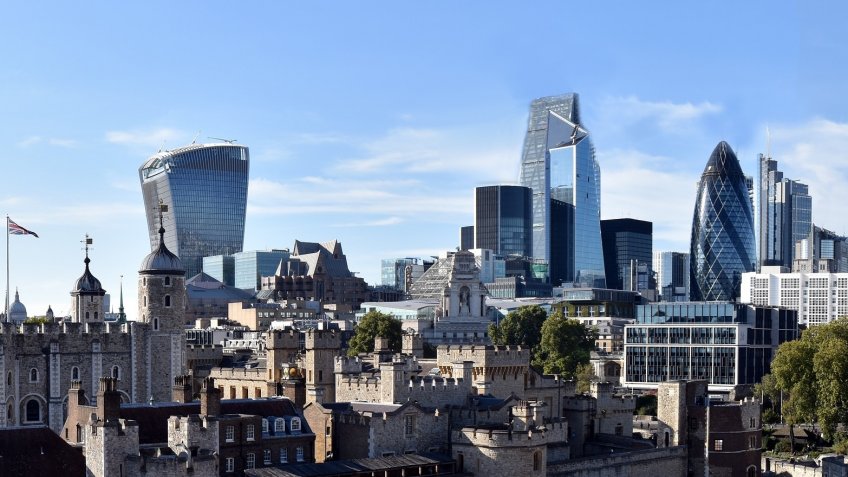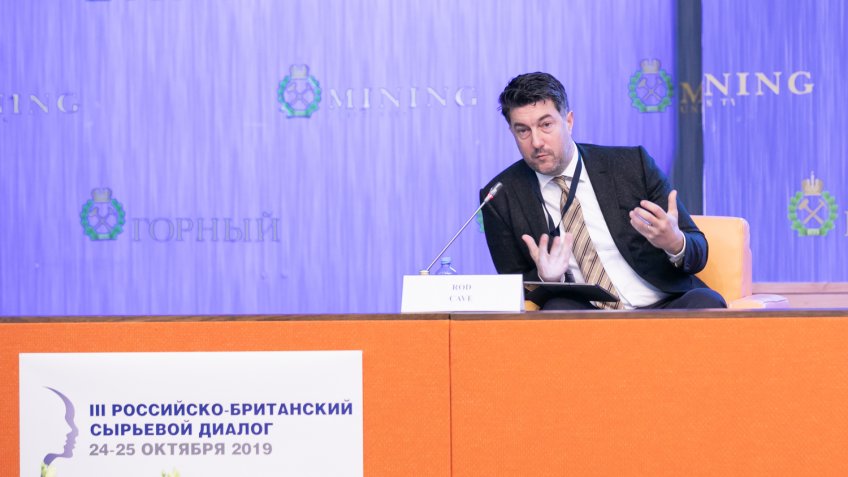
Russia poses the greatest military threat to European security. This statement is contained in the new strategy for the modernization of the Armed Forces of the United Kingdom, published on the website of the Ministry of Defense of this state on Monday, March 22. The Forpost decided to find out whether the residents of Foggy Albion agree with such a definition.
In 2020, despite the coronavirus and a sharp decline in global economic activity, trade turnover between Russia and Britain reached $26.5 billion, 53.6% more than in 2019. By comparison, the volume of our foreign trade with China during the same period decreased by 6%, with Belarus by 14%, with Germany by 21%, and with the Netherlands by as much as 41%. What is the reason? Has London, unlike the rest of the world, decided, despite the lockdown, to dramatically increase its business ties with domestic business, contrary to logic? Or are such impressive statistics due to the low base effect?
The latter assumption is wrong. Our trade balance bottomed out back in 2016 when it fell to an all-time low of $10.3 billion. Since then, until the pandemic began, there was an upward trend caused both by rising prices on commodity markets and by the basic need of British businesses for Russian goods. This is the case, not the other way around because statistics clearly indicate that our exports to the United Kingdom traditionally exceed imports from there by two to three times.
Last year the trade surplus reached a record $19.7 billion, having more than doubled. The reason for such a significant surge was the sharply increased demand for precious stones and metals, which are becoming progressively more popular among investors during crises when there are doubts about the stability of other financial instruments. For example, in 2020, Russia sold 113.5 tons of gold in the UK for the “cosmic” amount of $ 5.3 billion. This is a third more than was sold to all the countries of the world for the previous three years.
Gold, platinum, and other minerals not only offset the negative impact of lower oil and natural gas prices but also brought trade between the countries to an all-time high level. This happened despite political differences and attempts by the West to demonize our country, including in the eyes of financiers.
But what will happen next? Will the trend change as London’s need for the yellow metal is no longer so great? According to many British economists, there is no hurry to answer that question in the affirmative. Circumstances are such that the pace of global economic recovery due to the third wave of the pandemic may not be as optimistic as was imagined last winter. The global GDP growth scenarios due to the numerous lockdowns recently introduced in the EU and South America are at risk of being derailed. This means that those “capital surpluses that exist in the UK and should become investments” could be diverted to regions with better sanitary and epidemiological conditions, particularly China and Russia.
“There are good prospects for the development of bilateral economic relations, including through the exchange of intellectual baggage. The Western world also pays attention, though perhaps less attention than in Russia, to the need to intensify cooperation between our countries. Five or six years ago the public in Western countries did not take what is happening in your country so seriously. Now everything is changing. We see that Russia is not only capable of importing raw materials but also of producing quality goods. For example, batteries,” says Rod Cave, regional director for Russia, Eastern Europe, and Central Asia at the consulting company CRU.
He and many other representatives of Foggy Albion will take part in the 4th Russian-British Raw Materials Dialogue. The Forum will take place on March 25-26, but, in contrast to previous years, it will be held online. The conference will bring together prominent businessmen, scientists, and public figures who will discuss opportunities for closer integration.
"Regardless of the political situation, universities, enterprises, and companies in Russia and Britain can cooperate on a mutually beneficial basis. Such events as our Dialogue are able to destroy all political barriers and become a serious stimulus for the development of relations between the states. Our forum helps parties to better understand how they can be useful to each other and increase the level of trust", - says the head of the Russo-British Chamber of Industry Charles Hendry.
Dialogue participants believe that "politics should not be mixed up with economics. After all, artificial restrictions on trade have a negative effect on businesses in both countries. Similarly, barriers to the integration of scientists reduce the effectiveness of research on a global scale.
“I am well aware that Russia is a good market for investment. There are all the conditions here to encourage investors to come into sectors such as mechanical engineering or mining, for example. But they don’t know much about your country in Britain, many people don’t even know that you can get from Moscow to St. Petersburg by plane within one hour or by train within three and a half hours. Therefore, the Raw Materials Dialogue is a great opportunity for the businessmen from our countries to get reliable information about each other and understand if they have common interests," said Trevor Lewis, director of the Russian office of the Department for International Trade of Great Britain.
Let us note that the organizers of the forum on the Russian side are the International Center of Competence in Mining Engineering Education under the auspices of UNESCO, and on the British side - the Institute of Materials, Minerals and Mining IOM3 (London). The main topics of panel discussions will be waste recycling, improving safety in mining, digitalization of the industry, the future of raw materials energy, the prospects for hydrogen, the energy transition, and innovations in exploration. You can participate in the conference if you register by following this link.


